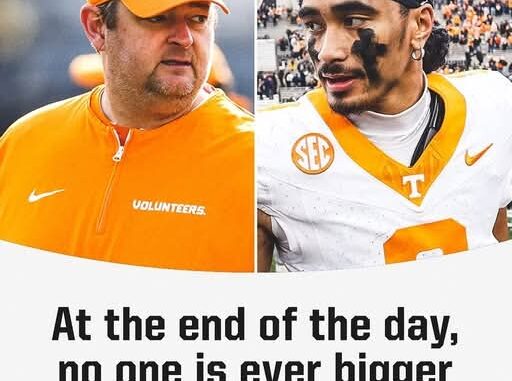
The Erosion of the Ideal: College Football’s Moral Compass in Crisis; The Growing Pressure to Compete in a Market Driven by Professionalization Raises Ethical Questions; The Devaluation of Amateurism, The Soul of the Game, and the Future of the Sport at a Critical Crossroads
The hallowed grounds of college football, once revered for the spirit of amateurism and the pursuit of excellence within a collegiate framework, now find themselves at a critical crossroads. The escalating pressures of a market driven by professionalization are fundamentally altering the very nature of the sport, raising profound ethical questions about the future of collegiate athletics. The increasing influence of lucrative NIL deals and the growing trend of players seeking significant financial compensation for their talents have created a complex and multifaceted crisis, threatening to erode the soul of college football and potentially shattering the delicate balance of the amateur ideal.
The once-sacred concept of amateurism, a cornerstone of college athletics for decades, is now under increasing scrutiny. The widespread adoption of Name, Image, and Likeness (NIL) deals has transformed the collegiate landscape, blurring the lines between amateur and professional athletes. While NIL opportunities represent a significant advancement for student-athletes, creating new revenue streams and potentially providing crucial financial support, the very essence of collegiate sport is being called into question.
Critics argue that these burgeoning financial incentives create an uneven playing field, with institutions possessing greater resources able to offer more lucrative deals, creating an inequitable system that might favor larger, wealthier programs. This disparity could further exacerbate the existing inequalities in college athletics, where resources are not evenly distributed, potentially leading to an even greater disparity between successful and struggling programs.
Furthermore, the rise of NIL deals has created a new layer of complexity for coaches and administrators. The need to manage financial compensation for players, negotiate contracts, and navigate the intricacies of the NIL market introduces unprecedented pressures and challenges. Maintaining the integrity of the game and ensuring that NIL deals do not compromise the spirit of amateurism is becoming a significant issue for college athletic departments and conferences.
The increased financial considerations surrounding collegiate sports raise crucial ethical dilemmas. The emphasis on compensation and professional-style negotiations potentially diminishes the focus on education, personal development, and the intrinsic values that college sports were designed to nurture. As players become increasingly focused on financial gains, concerns emerge about the potential for a shift in priorities, diminishing the educational value of the experience, and placing athletes at risk of exploitation.
Moreover, the pressures of professionalization are extending to the academic side of the equation. The constant influx of professional scouts and recruiting agents complicates student-athletes’ college experience, potentially impacting their focus on academics and creating a culture in which the academic aspect might take a backseat to the athletic aspirations. Balancing the pursuit of athletic excellence with academic achievement will be a critical challenge for institutions and individual athletes.
The implications of this transformation extend far beyond the athletic field. The changing dynamics of college football could alter the entire fabric of the sport. The possibility of diminishing the value of the amateur ideal could lead to a further disconnect between the college and professional levels, potentially affecting the development of future professional athletes. The concern is that a player focused more on the professional aspects of their career would not be as focused on the college experience.
The future of college football is at a critical juncture. The sport faces a choice: embrace the changes brought about by NIL and professionalization, or risk losing the very essence of what made it special. The debate around the soul of the game will continue to rage, as the collegiate landscape undergoes a profound transformation. Maintaining the integrity of the sport while catering to the economic realities of the modern era will be a delicate balancing act for institutions, conferences, and athletes alike. This transition requires a deep-seated discussion and collaborative effort from all stakeholders, and failure to do so could jeopardize the long-term viability and integrity of college athletics.
Leave a Reply